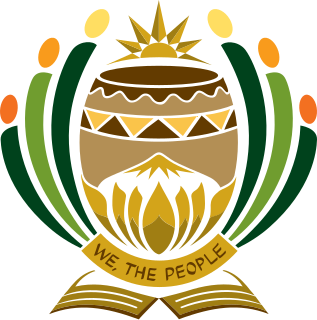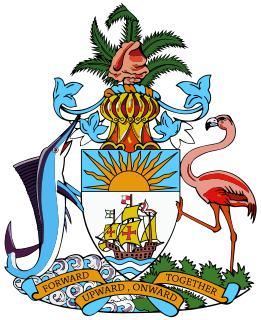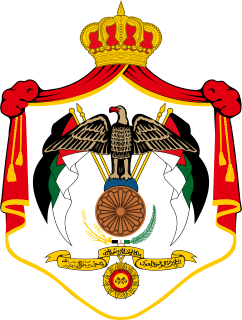
Eswatini, officially the Kingdom of Eswatini and also known as Swaziland, is a landlocked country in Southern Africa. It is bordered by Mozambique to its northeast and South Africa to its north, west and south. At no more than 200 kilometres (120 mi) north to south and 130 kilometres (81 mi) east to west, Eswatini is one of the smallest countries in Africa; despite this, its climate and topography are diverse, ranging from a cool and mountainous highveld to a hot and dry lowveld.

Eswatini is an absolute monarchy with constitutional provisions and Swazi law and Custom. The head of state is the king or Ngwenyama, currently King Mswati III, who ascended to the throne in 1986 after the death of his father King Sobhuza II in 1982 and a period of regency. According to the constitution of Eswatini, the king and Ingwenyama is a symbol of unity and the eternity of the Swazi nation. By tradition, the king reigns along with his mother or a ritual substitute, the Ndlovukati. The former was viewed as the administrative head of state and the latter as a spiritual and national head of state, with real power counterbalancing that of the king, but during the long reign of Sobhuza II the role of the Ndlovukati became more symbolic. The king appoints the prime minister from the legislature and also appoints a minority of legislators to both chambers of Libandla (parliament), with help from an advisory council. The king is allowed by the constitution to appoint some members to parliament for special interests. These special interests are citizens who might have been left out by the electorate during the course of elections or did not enter as candidates. This is done to balance views in parliament. Special interests could be people of gender, race, disability, business community, civic society, scholars, chiefs and so on. The Senate consists of 30 members, of which some are appointed by the king on recommendation of the advisory council and others elected by the lower house. The House of Assembly has 65 seats, 55 of which are occupied by elected representatives from the 55 constituencies around the country, 10 appointed by the king on recommendation of the advisory council and the attorney general is the ex-officio member. Elections are held every five years.

The Parliament of South Africa is South Africa's legislature and under the country's current Constitution is composed of the National Assembly and the National Council of Provinces.

Elections in Antigua and Barbuda take place in the framework of a parliamentary democracy.

Elections in the Bahamas take place in the framework of a parliamentary democracy. Since independence voter turnout has been generally high in national elections, with a low of 87.9% in 1987 and a high of 98.5% in 1997. The current Prime Minister is the Hon Hubert Minnis.

Elections in Barbados is the process of conducting general elections or by-elections and formulating election results in Barbados. An election is a process in which a vote is held to democratically elect national candidates to an office. In the case of Barbados, it is the mechanism by which the electors choose members to fill elective offices in the House of Assembly. Elections are held on Election Day. These general elections do not have fixed dates, but must be called within five years of the opening of parliament following the last election. A former minister of the DLP, Warwick Franklin summed up the general elections process in Barbados as saying it is really just, "30 by-elections on the same day."

Elections in Jordan are for the lower house, known as the House of Representatives, of the bicameral parliament of Jordan, as well as for local elections. They take place within a political system where the King has extensive legislative and executive powers, retaining ultimate political control. The Prime Minister is selected by the King, the PM is then free to choose his own Cabinet. The parliament has quotas: three seats for Circassians and Chechens, nine for Christians and fifteen for women. The electoral system favours rural tribes and those of East Bank origin over urban areas that are primarily inhabited by those of Palestinian descent.

Lobamba is the traditional, spiritual, and legislative capital city of Eswatini, seat of the Parliament, and residence of the Ntombi, the Queen Mother. Mswati III lives about 10 kilometres (6.2 mi) away at the Lozitha Palace. The King and Queen Mother participate in annual December and January Incwala ceremonies and August and September Reed Dancees at the Royal Kraal.

The House of Assembly of Eswatini is the lower chamber of the country's bicameral Parliament. The Assembly may debate and pass bills.

The Senate of Eswatini is the upper chamber of the country's bicameral Parliament. The Senate may debate or pass a bill, with the exception of a "money bill", which must first be introduced in the lower chamber, the House of Assembly.

The House of Representatives is the lower house of the National Assembly of Thailand, the legislative branch of the Thai government. The system of government of Thailand is that of a constitutional monarchy and a parliamentary democracy. The system of the Thai legislative branch is modelled after the Westminster system. The House of Representatives has 500 members, all of which are democratically elected: 375 members were directly elected through single constituency elections, while the other 125 are elected through party-list proportional representation. The roles and powers of the House of Representatives were enshrined in the Constitution of 2017.

In Eswatini, an inkhundla is an administrative subdivision smaller than a district but larger than an umphakatsi. There are 55 tinkhundla in Eswatini: 14 in Hhohho District, 11 in Lubombo District, 16 in Manzini District, and 14 in Shishelweni District. According to the constitution of Eswatini, the government for Eswatini is a democratic, participatory, tinkhundla-based system that emphasizes devolution of state power from central government to tinkhundla areas and individual merit as a basis for election or appointment to public office. The system is non-partisan since the constitution does not recognize political parties, although section 25 of the constitution allows for open freedom of assembly and association. Each inkhundla elects one representative to the House of Assembly of Eswatini, the lower chamber of the bicameral parliament (Libandla). The same trend is applied in local government elections. This governing system was designed by King Sobhuza II with the assistance of political scholars and lawyers. It came to effect in 1978 and was adjusted in the early 1990s.

The Senate of Kazakhastan is the upper house of two chambers in Kazakhstan's legislature, known as the Parliament (Parlamenti). The Senate is composed of elected members - two from each region, the city of republican importance (Almaty) and the capital city of the Republic of Kazakhstan at joint sessions of the members of all representative bodies of respective regions, city of the republican importance and the capital city of the Republic.
Articles related to Eswatini include:

General elections were held in Swaziland on 27 October 1978. The elections was held using the Tinkhundla system, in which voters elected 80 members to an electoral college, who then selected 40 non-party candidates for the Parliament, whilst the King appointed a further ten. The new system strengthened the position of the country's traditionalists.

General elections were held in Swaziland in October 1983. The elections was held using the Tinkhundla system, in which voters elected members to an electoral college, who then selected 40 non-party candidates for the Parliament, whilst the King appointed a further ten. Although there was no voter registration, the government claimed voter turnout was around 80%, although there were suggestions that people were pressured to vote.

General elections were held in Swaziland in November 1987, having originally been scheduled for 1988, but brought forward due to tensions in the country. The elections was held using the Tinkhundla system, in which voters elected members to an electoral college, who then selected 40 non-party candidates for the Parliament, whilst the King appointed a further ten. Unlike previous elections, all forty of the selected candidates were new to parliament.

General elections were held in Swaziland in September and October 1993. The elections was held using the Tinkhundla system, in which voters elected members to an electoral college, who then selected 55 non-party candidates for the Parliament, whilst the King appointed a further ten.

General elections were held in Swaziland on 16 and 24 October 1998. The elections was held using the Tinkhundla system, in which voters elected members to an electoral college, who then selected 55 non-party candidates for the Parliament, whilst the King appointed a further ten. 198,445 voters were registered, with 119,845 casting votes, giving a turnout of 60.4%.

General elections were held in Eswatini on 18 August and 21 September 2018.














